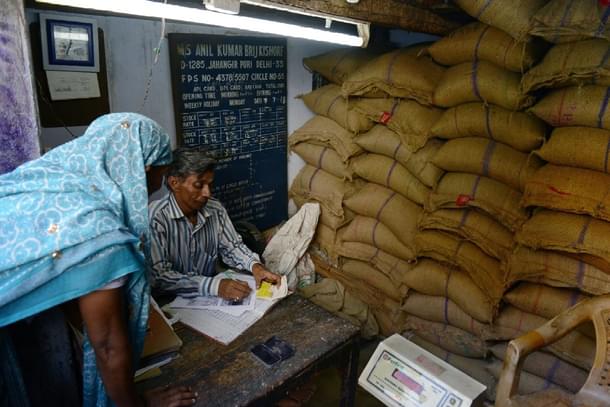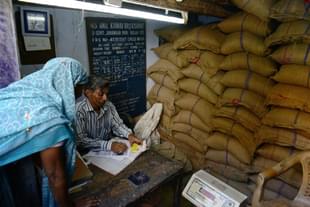News Brief
Government Betting On 'Bharat Foods' To Tame Inflation
Kuldeep Negi
Jul 02, 2024, 12:15 PM | Updated 12:15 PM IST
Save & read from anywhere!
Bookmark stories for easy access on any device or the Swarajya app.


The Centre has spent nearly Rs 2,000 crore towards the distribution of Bharat rice and wheat under the Price Stabilisation Fund (PSF) scheme to control food inflation.
This initiative aims to support the lower-income population by providing essential grains at subsidised prices.
In the interim budget for FY25, the government has earmarked Rs 2.05 lakh crore for food subsidies against the FY24 revised budget of Rs 2.12 lakh crore and FY23’s expenditure of Rs 1.97 lakh crore.
According to the experts, the government’s retail interventions, which include purchasing grains, milling them, and selling them at discounted rates, have been beneficial for the poor.
“The proportion of income used by people at the bottom of the pyramid for consuming cereals is more than the people in the upper bracket. If you look at it that way, you will find that the people at the bottom of the pyramid, or the lower 50% or so, are facing higher inflation than the rest and that is reflecting on slower consumption growth,” Devendra Pant, chief economist of India Ratings, was quoted as saying by Livemint.
In May 2023, food inflation marginally decreased to 8.69 per cent from 8.7 per cent in April. However, wheat retail inflation increased to 6.5 per cent from 6 per cent, while rice retail inflation slightly eased to 12.3 per cent from 12.5 per cent.
Overall, retail inflation dropped to 4.75 per cent in May from 4.83 per cent in April.
Since the launch of Bharat Chawal and Bharat Atta in November, the government has spent Rs 947 crore and Rs 956 crore on them, respectively.
The government launched Bharat atta at a subsidized price of Rs 27.5 per kg after it announced the scheme in February 2023 at Rs 29.5 a kg to keep prices in check.
Bharat rice was launched this February at Rs 29 per kg amid a steep rise in retail prices of the grain.
The Food Corporation of India (FCI) supplies these two staples to three central procurement agencies: the National Agricultural Cooperative Marketing Federation of India (Nafed), the National Cooperative Consumers Federation of India Ltd (NCCF), and Kendriya Bhandar.
These agencies distribute the grains through mobile vans, fair price shops, and online platforms.
So far, 9.91 lakh tonnes of rice and nearly 13 lakh tonnes of atta have been sold by these three agencies.
The PSF, established in 2014-15 with a Rs 500 crore corpus, aims to maintain buffer stocks to prevent hoarding, protect consumers by supplying commodities at reasonable prices, and incentivise domestic production through direct purchases from farmers and farmer's association.
Initially, the PSF covered only onions, potatoes, and pulses. With the launch of Bharat rice and atta, the government now compensates the FCI for supplying these products to the three procurement agencies.
The FCI is getting a subsidy or discount from PSF in the range of Rs 435 to Rs 585 for a quintal of wheat and Rs 541 per quintal of rice supplied to Nafed, NCCF and Kendriya Bhandar for processing these and then selling under the Bharat brand.
Kuldeep is Senior Editor (Newsroom) at Swarajya. He tweets at @kaydnegi.





